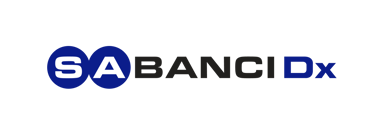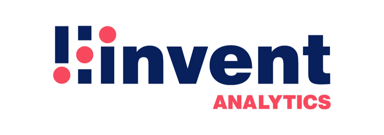Human Resource Management
In today's dynamic business scene, skilled and engaged employees are a company's most valuable asset. This is where Human Resource Management (HRM) steps in, playing a fundamental role in attracting, developing, and retaining a top-notch workforce.
But what exactly is HR, and why is it so crucial for an organization's success? 🤔
What is HR?
Human Resources (HR) refers to the department within an organization that is responsible for all things employee related. This includes recruitment, training, performance management, employee relations, compensation, and benefits. The ultimate goal of Human Resources is to maximize employee performance to meet the employer's strategic objectives.
HR Roles and Responsibilities
HR professionals wear many hats, acting as strategic partners, employee advocates, and guardians of the company’s culture. Here are their core responsibilities👇:
- Talent Acquisition & Onboarding: Recruiting the best talent, screening resumes, conducting interviews, and ensuring a smooth onboarding process for new hires.
- Compensation & Benefits: Developing competitive compensation packages, including salary structures, bonuses, and stock options. They also manage employee benefits programs, ensuring a comprehensive package that serves for employee well-being. This could include health insurance, dental insurance, retirement plans, and wellness programs.
- Performance Management: Establishing performance goals, conducting performance reviews, and providing feedback to help employees shine in their roles.
- Learning & Development: Identifying training needs, designing and delivering training programs, and fostering a culture of continuous learning within the organization. This might involve offering skills development workshops and leadership training programs.
- Employee Relations: Mediating conflict between employees and managers, addressing employee complaints, and promoting positive workplace relations. HR professionals should be skilled in conflict resolution and have a strong understanding of employment law.
- Compliance: Ensuring adherence to labor laws, regulations, and company policies.
The Importance of HR
Effective HR practices translate into significant benefits for an organization. 👌
A strong HR team creates a positive work environment, leading to higher employee engagement. Engaged employees are more productive, satisfied, and therefore less likely to leave the company. HR initiatives like employee recognition programs and social events can contribute to a positive work environment.
HR plays a crucial role in developing a strong employer brand that attracts top talent in a competitive job market. This can be achieved by crafting a compelling employer value proposition (EVP) that highlights the company's unique culture, benefits, and career development opportunities.
Efficient HR practices can help minimize costs associated with employee turnover, recruitment, and legal issues. Investing in retention programs and addressing employee concerns proactively leads to significant cost savings.
By focusing on employee development and well-being, HR helps create a workforce that is highly skilled and motivated, leading to increased productivity and profitability. This might involve offering opportunities for skill development and career advancement.
Functions of HR Department
HR departments typically handle a wide range of functions, ensuring the smooth operation of the organization. Here's a breakdown of some key areas:
- Recruitment and Selection: Finding and hiring the best candidates.
- Training and Development: Facilitating ongoing employee growth and development.
- Performance Management: Setting performance standards and evaluating employee performance.
- Compensation and Benefits: Developing competitive pay structures and benefit programs.
- Health and Safety: Ensuring a safe and healthy working environment.
- Employee Relations: Managing relationships between employees and management.
- Workforce Planning: Analyzing future talent needs based on organizational goals and strategies.
- Onboarding: Welcoming and integrating new hires into the organization and providing them with the necessary information and resources to be successful.
- Offboarding: Managing the employee separation process in accordance with company policies and legal regulations.
HR Skills and Qualifications
To thrive in the competitive HR field, it's crucial to develop a strong skill set:
- Technical Skills: Proficiency in HR information systems (HRIS), applicant tracking systems (ATS), and other HR technology tools.
- Communication Skills: The ability to communicate effectively with all levels of employees, from executives to frontline workers. This includes written and verbal communication, as well as active listening skills.
- Interpersonal Skills: Strong interpersonal skills are essential for building relationships with employees, managers, and other stakeholders.
- Problem-Solving Skills: HR professionals need to be able to identify and solve complex problems related to employee relations, performance management, and other HR issues.
- Analytical Skills: The ability to analyze data and translate it into actionable insights to inform HR decisions.
- Business Intelligence: A strong understanding of the business and how HR practices can contribute to organizational goals.
HR Career Path
The field of HR offers a diverse and rewarding career path. Whether you're interested in specializing in recruitment, compensation and benefits, or employee relations, there's a path for you. Here's a roadmap to get you started 🤝:
A bachelor's degree in Human Resources Management or a related field is typically required for entry-level HR positions. Many HR professionals may also pursue professional certifications about HRM. Positions like ‘HR Assistant’, and ‘HR Generalist’ can help you gain a broad understanding of the HR function.
HR Specialization Areas
As you gain experience, you can specialize in a particular HR area that aligns with your interests and skills. Here are some popular specializations:
1. Talent Acquisition
Focuses on attracting, recruiting, and onboarding top talent.
2. Compensation & Benefits
Designs and administers competitive compensation packages and employee benefits programs. Requires expertise in salary benchmarking, benefits administration, and legal compliance.
3. Learning & Development
Identifies training needs, develops and delivers training programs, and fosters a culture of continuous learning.
4. Employee Relations
Maintains positive workplace relations by mediating conflicts, addressing employee complaints, and promoting a healthy work environment.
5. HR Business Partner
Acts as a strategic partner to business leaders, providing HR expertise and guidance. Requires a strong understanding of the business and excellent analytical skills.
6. Leadership & Management
Experienced HR professionals can move into leadership roles such as HR Manager, Director of HR, or Chief Human Resources Officer (CHRO). These roles involve overseeing all HR functions, developing HR strategy, and ensuring alignment with organizational goals.
Techniques for Effective HRM
Here are some key best practices to consider for effective HR management 🤩:
- Develop a Strategic HR Plan: Align HR practices with the overall business strategy to ensure initiatives contribute to organizational goals.
- Invest in Employee Development: Offer opportunities for continuous learning and skill development to keep your workforce competitive.
- Promote a Culture of Diversity & Inclusion: Create a workplace where everyone feels valued and respected, regardless of background or ethnicity.
- Utilize HR Technology: Leverage technology to simplify HR processes, improve data analysis, and enhance the employee experience.
- Focus on Employee Well-being: Implement programs and initiatives that promote employee well-being.
- Maintain Strong Communication: Keep employees informed about company news, HR policies, and any changes that may impact them.
- Regularly Measure & Evaluate: Track key HR metrics and regularly evaluate the effectiveness of HR programs to ensure they are achieving their desired outcomes.
Human Resource Management and Employee Engagement
Human Resource Management (HRM) plays a critical role in fostering employee engagement, a key driver of organizational success. HR can achieve this by creating a positive work environment built on trust, respect, and open communication.
Providing opportunities for growth and development through training programs fuels employee motivation and career aspirations. Recognizing and rewarding achievements fosters a sense of accomplishment, while empowering employees with ownership and decision-making authority strengthens their commitment to the organization.
Promoting work-life balance through flexible work arrangements and well-being programs contributes to a more engaged and productive workforce. ⭐️
Human Resource Management Tools
Technology is constantly transforming the HR landscape. Here are some key HR tools that can help streamline your HR processes 👇:
- Learning Management Systems (LMS): Deliver and track employee training programs online, providing a centralized platform for learning resources.
- Performance Management Software: Streamline the performance management process, setting goals, conducting reviews, and providing feedback electronically.
- HR Information Systems (HRIS): Manage employee data, payroll, benefits administration, and other HR functions in one centralized system.
- Employee Engagement Platforms: Facilitate communication between employees and management, promote recognition programs, and foster a positive work environment.
- People Analytics Tools: Analyze HR data to gain insights into workforce trends, identify areas for improvement, and make data-driven HR decisions.
- Applicant Tracking Systems (ATS): Manage the recruitment process efficiently, from job postings to candidate screening and interview scheduling.
Modern Applicant Tracking Systems (ATS) like Hirex are game changers for HR. They automate tasks, improve candidate experience, and provide valuable recruitment data. Hirex helps you source top talent, screen resumes efficiently, manage your pipeline, and build a strong employer brand – all in one user-friendly platform.
Effective HR management is no longer just about administrative tasks. It's about creating a strategic partnership between HR and the business, focusing on attracting, developing, and retaining a high-performing workforce. By staying informed about the latest trends, utilizing technology effectively, and implementing best practices, HR professionals can play a vital role in driving organizational success. ⭐️
Get a demo
- Quickly find top candidates with smart application management
- Improve team collaboration using built-in communication and workflows
- Offer a smooth candidate experience to strengthen your employer brand
- Count on 24/7 support for a hassle-free hiring process
- Quickly find top candidates with smart application management
- Improve team collaboration using built-in communication and workflows
- Offer a smooth candidate experience to strengthen your employer brand
- Count on 24/7 support for a hassle-free hiring process
"We truly felt the speed difference. Everything was smoother, and candidate feedback was much more positive. It made our jobs easier."

Trusted by 100+ teams
Get Informed,F.A.Q.
Revolutionize your hiring process with our transformative Applicant Tracking System (ATS.)
Suggested keywords
What is Cultural Fit?
Let's talk numbers - 89% of employers put cultural fit at the top of their hiring checklist. Pretty huge. But wait a second... what exactly does cultural fit mean in today's fast-moving workplace?The ...
Employee NPS Benchmarks
An Employee NPS benchmark is basically a way to see how your company’s employee satisfaction stacks up against others. It helps turn your eNPS score into something useful by giving it context. 📌You'r...
Salary Benchmarking
Salary benchmarking is basically figuring out if what you're paying your team makes sense compared to what others are offering for similar roles. It’s like checking the going rate before you buy somet...















